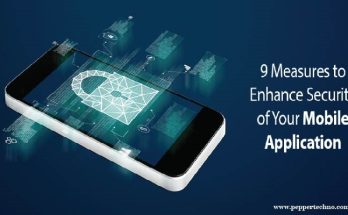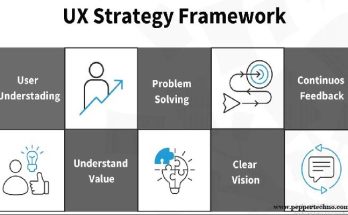Me When I Spread Misinformation: My Journey Towards Being a Responsible Digital Citizen
In today’s digital age, where technology is an integral part of our daily lives, the concept of digital citizenship has become increasingly important. Digital citizenship refers to the responsible and ethical use of technology, including the internet, social media, and other digital platforms. It encompasses a range of skills and behaviors that enable individuals to navigate the digital landscape safely and ethically. In this article, we will explore the importance of digital citizenship in today’s world and discuss how we can become responsible digital citizens.

The Importance of Digital Citizenship in Today’s World
Technology has revolutionized the way we interact with each other and the world around us. It has made communication faster and more convenient, allowing us to connect with people from all over the globe. However, this increased connectivity also comes with its own set of challenges. The internet is a vast and complex space, filled with both opportunities and risks. Being a responsible digital citizen means understanding these risks and taking steps to mitigate them.
One of the key reasons why digital citizenship is important is because our online actions can have real-life consequences. What we say and do online can impact our relationships, job opportunities, and even our personal safety. For example, posting inappropriate or offensive content on social media can damage our reputation and harm our chances of getting hired. Similarly, engaging in cyberbullying or online harassment can have serious emotional and psychological effects on the victims.
Realizing the Impact of My Online Actions
It is crucial for individuals to realize the impact their online actions can have on themselves and others. In today’s interconnected world, everything we do online leaves a digital footprint that can be traced back to us. This means that even seemingly harmless actions like liking a post or sharing a photo can have unintended consequences.
For instance, a thoughtless comment made on social media can escalate into a full-blown argument or even lead to offline conflicts. Similarly, sharing false information or spreading rumors can have far-reaching consequences, such as damaging someone’s reputation or inciting panic. It is important to remember that the internet is not a separate reality; it is an extension of our real lives, and our actions online can have real-world implications.
Overcoming Misconceptions About Digital Responsibility
There are several misconceptions about digital responsibility that need to be addressed. One common misconception is that what happens online doesn’t matter or isn’t as important as what happens offline. This belief undermines the significance of our online actions and fails to recognize the impact they can have on ourselves and others.
Another misconception is that digital responsibility is solely the responsibility of parents or educators. While it is true that parents and educators play a crucial role in teaching young people about digital citizenship, it is equally important for individuals of all ages to take responsibility for their own actions online. Digital citizenship is a lifelong learning process that requires continuous education and self-reflection.
Learning to Navigate the Digital Landscape Safely and Ethically
To be responsible digital citizens, we need to learn how to navigate the digital landscape safely and ethically. Here are some tips for staying safe online:
- Protect your personal information: Be cautious about sharing personal information online, such as your full name, address, phone number, or financial details. Use strong and unique passwords for your online accounts and enable two-factor authentication whenever possible.
- Think before you click: Be wary of clicking on suspicious links or downloading files from unknown sources. These could contain malware or viruses that can compromise your device and personal information.
- Be mindful of your online behavior: Treat others with respect and kindness in all your online interactions. Avoid engaging in cyberbullying, harassment, or hate speech. Remember that behind every screen name is a real person with feelings.
When it comes to ethical considerations, it is important to think critically about the content we consume and share online. Before sharing an article or a news story, take a moment to verify its credibility and accuracy. Be aware of the potential biases and agendas behind the information you come across online. By being mindful of our own actions and choices, we can contribute to a more ethical and responsible digital landscape.
Recognizing the Consequences of Cyberbullying and Online Harassment
Cyberbullying and online harassment are serious issues that can have devastating effects on individuals and society as a whole. Cyberbullying refers to the use of technology to harass, intimidate, or humiliate others. It can take many forms, such as sending threatening messages, spreading rumors, or sharing embarrassing photos or videos without consent.
The consequences of cyberbullying can be severe, leading to emotional distress, depression, anxiety, and even suicide. It can also negatively impact academic performance, social relationships, and overall well-being. Furthermore, cyberbullying has broader societal implications, as it perpetuates a culture of cruelty and intolerance.
It is important for individuals to recognize the signs of cyberbullying and take action to prevent it. If you or someone you know is being cyberbullied, it is important to reach out for help and support. Report the abuse to the relevant authorities or platforms, block the person responsible, and document any evidence of the harassment. By standing up against cyberbullying, we can create a safer and more inclusive digital environment.
Understanding the Power of Digital Media and Its Influence on Society
Digital media has the power to shape public opinion and influence behavior on a massive scale. Social media platforms like Facebook, Twitter, and Instagram have become powerful tools for spreading information and mobilizing communities. They have been used to organize protests, raise awareness about social issues, and hold those in power accountable.
However, this power also comes with responsibility. It is important for individuals to critically evaluate the information they come across online and be aware of the potential biases and agendas behind it. By developing critical thinking skills, we can become more discerning consumers of digital media and avoid falling prey to misinformation or manipulation.
Developing Critical Thinking Skills to Evaluate Online Information
In the age of information overload, it is crucial to develop critical thinking skills to evaluate the credibility of online sources. Here are some tips for evaluating online information:
- Check the source: Look for information from reputable sources, such as established news organizations, academic institutions, or government websites. Be wary of sources that are biased, unreliable, or lack transparency.
- Verify the information: Cross-reference the information you come across with multiple sources to ensure its accuracy. Look for corroborating evidence or expert opinions to support the claims being made.
- Consider the context: Pay attention to the date of publication and the context in which the information is presented. Is it a current news story or an outdated article? Is it presented as fact or opinion? Understanding the context can help you assess the reliability and relevance of the information.
By developing these critical thinking skills, we can become more discerning consumers of online information and make informed decisions based on reliable and accurate sources.
Taking Responsibility for My Digital Footprint and Online Reputation
Our digital footprint refers to the trail of data we leave behind when we use technology, such as our social media posts, online comments, and search history. It is important to be mindful of our digital footprint because it can have long-lasting consequences.
Employers, colleges, and even potential romantic partners often conduct online searches to learn more about individuals. What they find can influence their perception of us and impact our opportunities. Therefore, it is important to manage our digital footprint by being mindful of what we post online and how we interact with others.
Here are some tips for managing your online reputation:
- Think before you post: Before sharing something online, ask yourself if it is something you would be comfortable with others seeing. Remember that once something is posted online, it can be difficult to remove or control who sees it.
- Set privacy settings: Take advantage of the privacy settings on social media platforms to control who can see your posts and personal information. Regularly review and update these settings to ensure they align with your desired level of privacy.
- Monitor your online presence: Regularly search for your name on search engines to see what information is publicly available about you. If you come across any negative or inaccurate information, take steps to address it, such as contacting the website or platform to request its removal.
By taking responsibility for our digital footprint and online reputation, we can present ourselves in a positive and professional manner and protect our personal and professional opportunities.
Advocating for Digital Privacy and Security
Digital privacy and security are fundamental rights that need to be protected in today’s digital age. Our personal information is valuable and should be treated with care. Unfortunately, there are many threats to our digital privacy and security, such as data breaches, identity theft, and surveillance.
To protect your personal information online, consider the following tips:
- Use strong and unique passwords: Avoid using easily guessable passwords and consider using a password manager to securely store your passwords.
- Enable two-factor authentication: Two-factor authentication adds an extra layer of security by requiring a second form of verification, such as a code sent to your phone, in addition to your password.
- Be cautious of phishing attempts: Phishing is a common tactic used by cybercriminals to trick individuals into revealing their personal information. Be wary of suspicious emails or messages asking for sensitive information and avoid clicking on links or downloading attachments from unknown sources.
It is also important to advocate for stronger privacy laws and regulations that protect individuals’ rights online. Support organizations that fight for digital privacy and security, and stay informed about the latest developments in this field.
Empowering Others to Become Responsible Digital Citizens
Becoming a responsible digital citizen is not just about our own actions; it is also about empowering others to do the same. Here are some ways we can help others become responsible digital citizens:
- Educate and raise awareness: Share information about digital citizenship with your friends, family, and community. Organize workshops or presentations to educate others about the importance of responsible technology use.
- Lead by example: Be a positive role model by demonstrating responsible digital behavior in your own life. Show others how to use technology in a safe, ethical, and respectful manner.
- Support digital literacy initiatives: Advocate for digital literacy programs in schools and communities. These programs can teach young people the skills they need to navigate the digital landscape safely and ethically.
By empowering others to become responsible digital citizens, we can create a more inclusive and compassionate online community.
Conclusion:
Digital citizenship is crucial in today’s world where technology plays such a significant role in our lives. Being a responsible digital citizen means understanding the impact of our online actions, navigating the digital landscape safely and ethically, and advocating for digital privacy and security. By developing critical thinking skills, managing our digital footprint, and empowering others to become responsible digital citizens, we can contribute to a more positive and inclusive online environment. Let us all strive to be responsible digital citizens and make the most of the opportunities that technology offers while minimizing its risks.



